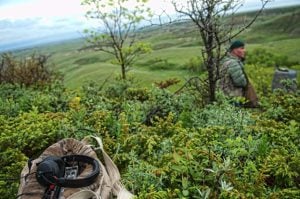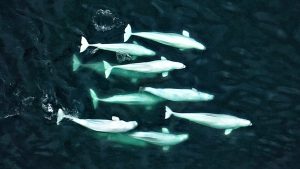Lancaster Sound—the eastern entrance of the critically important Northwest Passage—is one step closer to becoming a marine protected site.
Shell has handed over more than 8,000 kilometres squared—an area larger than Banff National Park—of offshore permits in the area to the National Conservancy of Canada (NCC), who have subsequently passed them off to the government.
Currently, a federal proposal for a conservation area in Lancaster Sound includes 44,500 kilometres squared of marine territory, and the hope is that Shell’s addition will move the process along.
“[Establishing a marine protected site] can be a very long process, but I think what we see now is a lot of motivation with Shell and with the government, so we are optimistic that this can happen quickly,” says Lisa McLaughlin, chief conservation officer at the NCC.
The announcement was made on June 8, World Ocean’s Day, at the Ocean Summit held in Ottawa.
“When I speak with our next generation of leaders it’s clear that they not only hope we will find ways to reconcile the environment with the economy, but they expect us to,” says Michael Crothers, Shell Canada president and country chair. “I’m really pleased that our contributions will play a major role in protecting the Lancaster Sound area for future generations.”
Establishing Lancaster Sound as a protected site will aid in the government’s goal of increasing Canada’s marine protected areas to 10 per cent by 2020. Presently, less than one per cent of Canada’s ocean’s are fully protected—one of the smallest amounts of marine protection in the developed world.
Lancaster Sound is home to an astounding display of biodiversity—narwhals, walrus’, polar bears, and beluga whale, to name a few—and is critically important to the sustainability of many coastal Inuit communities.





